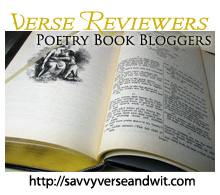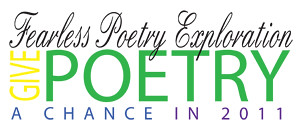
It now has its own blog where book bloggers can link up their own mailbox posts and share which books they bought or which they received for review from publishers, authors, and more.
Emma, Martha, and I also will share our picks from everyone’s links in the new feature Books that Caught Our Eye. We hope you’ll join us.
Here’s what I received:
Musical Tables by Billy Collins for review.
You can spot a Billy Collins poem immediately. The amiable voice, the light touch, the sudden turn at the end. He “puts the ‘fun’ back in profundity,” says poet Alice Fulton. In his own words, his poems tend to “begin in Kansas and end in Oz.”
Now “America’s favorite poet” (The Wall Street Journal) has found a new form for his unique poetic style: the small poem. Here Collins writes about his trademark themes of nature, animals, poetry, mortality, absurdity, and love—all in a handful of lines. Neither haiku nor limerick, the small poem pushes to an extreme poetry’s famed power to condense emotional and conceptual meaning. Inspired by the small poetry of writers as diverse as William Carlos Williams, W.S. Merwin, Kay Ryan, and Charles Simic, and written with Collins’s recognizable wit and wisdom, the poems of Musical Tables show one of our greatest poets channeling his unique voice into a new phase of his exceptional career.
Bullet Points: A Lyric by Jennifer Sutherland for Gaithersburg Book Festival consideration.
Part prose poem, part lyric essay, BULLET POINTS considers an American courthouse shooting, its aftermath, and its echoes in law, history, and capitalism. Tracing a woman trial lawyer’s experiences of violence–from the intimate and domestic to the national–attorney and poet Jennifer A Sutherland brings a deeply perceptive tenderness to the reality of historical abuses grounded in law and capitalism. Drawing on acts of language and power, art and trauma, BULLET POINTS raises questions about the systems and structures that enable violence via a poetry brilliantly awake to this truth: “Language is one way of doing business across time and into spaces. Image is another.”
Night Life: A Folk Horror Collection by Alba V. Sarria for Gaithersburg Book Festival consideration.
Tucked away in the mountains lays a small town where old gods, demons, and creatures with long forgotten names live frighteningly—and hopelessly— entangled with the humans who call it home. Quick, take the clawed hand of your guide, slip into the skins of the town’s inhabitants, and let this eerie collection of folk horror poetry ensnare you in the tales of the town, and awaken you to the coming rapture of the world.
Containing new and previously published poetry, multi-award winning poet Alba Sarria debuts a narrative folk horror collection spoken through the unusual eyes of 2nd and 1st person. This is a read for a lone dark night.
Rescue Is Elsewhere by Donald Illich for Gaithersburg Book Festival consideration.
In Rescue is Elsewhere, humans are abducted by disappointed UFOs, an astronaut is returned home to Earth by aliens, moon creatures steal our comedians, and a boy dreams of building a rocket to fly to another planet. Alternately serious and satirical, Donald Illich explores the phenomenon of UFOs and how they shape our imagination and lives. His poems unravel from the outer reaches of space to the neighborhood that you or I might live in, and the magic of language brings to the page multiple worlds hidden in the universe. Illich’s collection belongs in the sci-fi section of the library, where its tales can rub up against the fiction in classic pulp magazines of the 20th century.
Homeland of My Body by Richard Blanco for Gaithersburg Book Festival consideration.
In this collection of over 100 poems, Richard Blanco has carefully selected poems from his previous books that represent his evolution as a writer grappling with his identity, working to find and define “home,” and bookended them with new poems that address those issues from a fresh, more mature perspective, allowing him to approach surrendering the pain and urgency of his past explorations. Pausing at this pivotal moment in mid-career, Blanco reexamines his life-long quest to find his proverbial home and all that it encompasses: love, family, identity and ultimately art itself. In the closing section of the volume, he has come to understand and internalize the idea that “home” is not one place, not one thing, and lives both inside him and inside his art.
The poems range in form, voice, and setting, showcasing his command of craft, but in essence they are one continuous reflection on the existential question at the core of all of Blanco’s poetry: how can we find our place in the world. All are characterized by his keen eye, deep sensibility, and polished craft, without pretense. This volume is a gift to Blanco’s many readers but even more to those who have yet to discover that they can understand, and fall in love with poetry, that a poet can speak to them about his own and their own lives so profoundly, and that this poet, as Barack Obama discovered, can speak for all of us.
Richard Blanco has been justly celebrated for his poetic gifts and his command of the many forms poetry can take, from the finely structured to the prose poem formats. His previous volumes have been praised by Patricia Smith, Eileen Myles, Sandra Cisneros, Elizabeth Alexander, and many others. His poems have appeared in The New Yorker, The Atlantic, and dozens of other publications.
What books did you receive?
Check out Amazon’s Top Lit Fic





















